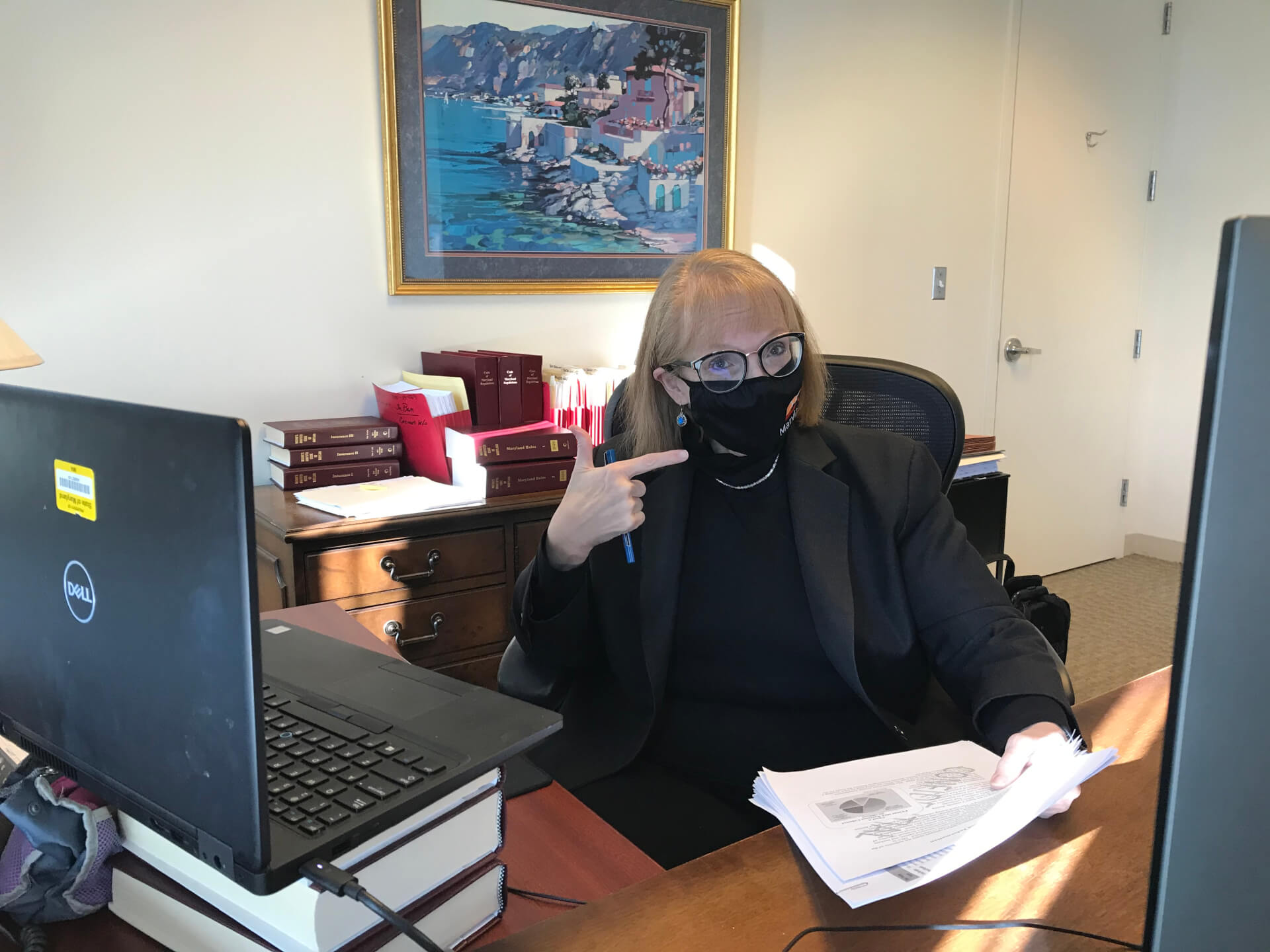
Fewer Marylanders are having virtual appointments with their doctors than during this spring’s peak of the COVID-19 pandemic, but telehealth remains very popular, accounting for the vast majority of all visits, state insurance officials said Thursday.
Not only are physicians and patients finding electronic visits more convenient — and in most cases, just as beneficial — as face-to-face encounters, such interactions are helping slow the spread of the coronavirus to medical staff and the general public, by reducing the need for infectious people to travel.
“The pandemic has led to an exponential growth in telehealth utilization,” Kathleen Birrane, Maryland’s insurance commissioner, told two House Health and Government Operations subcommittees.
Prior to COVID-19, Maryland’s five primary insurers covered 719 telehealth visits, on average, per month.
By April, the average had spiked to nearly 48,000 visits per month — with the state’s largest insurer covering more than 107,000.
June and July, the most recent months with reported data, saw a drop-off. But online visits continue to account for 85% of all doctor-patient appointments.
“We’re not really sure yet what the new normal is,” said David Cooney, Associate Commissioner for Life and Health at the Maryland Insurance Administration. “But across the board all the carriers acknowledge there’s no way we’re going to be returning to pre-COVID levels, and a lot of this increased utilization is here to stay.”
Maryland lawmakers enacted changes in the state’s insurance statutes earlier this year, just as the epidemic was starting to hit the U.S., expanding the statutory definitions of covered care to include online appointments. The legislation was supported by the state’s largest carriers.
While it is more popular than ever, there have been issues.
Maryland and federal laws exclude phone-call visits. Currently “audio only” conversations between doctors and patients are covered now because of federal and state emergency health declarations. If policy-makers want to make coverage of audio-only calls permanent, as a way of expanding access to care, the law would need to be updated.
The Maryland Board of Physicians has received nearly two dozen complaints about inappropriate conduct by doctors, said Kimberly Link, Compliance and Regulatory Manager with the Maryland Department of Health.
The most common complaint involved out-of-state practitioners prescribing medications to Maryland patients.
There were also allegations of “tele-medicine companies and physicians prescribing high-cost durable medical equipment, prescriptions and controlled dangerous substances without a Maryland license,” she said.
There have been allegations of prescriptions being issued without a physical exam or an existing patient relationship — and of out-of-state physician’s assistants who aren’t licensed in Maryland writing prescriptions.
In other cases, physicians were accused of “muting” patients or their family members and of patients being denied telehealth visits.
Public health experts who briefed lawmakers said that allowing Maryland residents to seek care from out-of-state doctors — particularly specialists and behavioral health professionals — could expand patient options.
College students attending school out-of-state who are now taking remote classes at home would benefit from being able to continue receiving care from their campus counselors, for example. “That would allow for access and continuity of care,” Link told the subcommittees.
But the issues raised by this year’s spike in telehealth use have put a spotlight on the need for strict oversight of providers. “It’s essentially become an unregulated area that the board is forced to confront at this point,” Link said.
Alcohol and drug treatment trainees are permitted to use telehealth platforms on an emergency basis only, to expand the number of available providers. But that authorization would expire if the public health emergency order were to expire. “Especially in the substance abuse area, they are an integral part of the workforce,” Link said of trainees.
Officials with the Maryland Insurance Administration will be meeting with their counterparts from neighboring states next week, and the issue of telehealth is high on the agenda, Birrane said.
Maryland legislators are expected to consider several bills expanding and refining the state’s telehealth laws when the General Assembly reconvenes in January.




 Creative Commons Attribution
Creative Commons Attribution